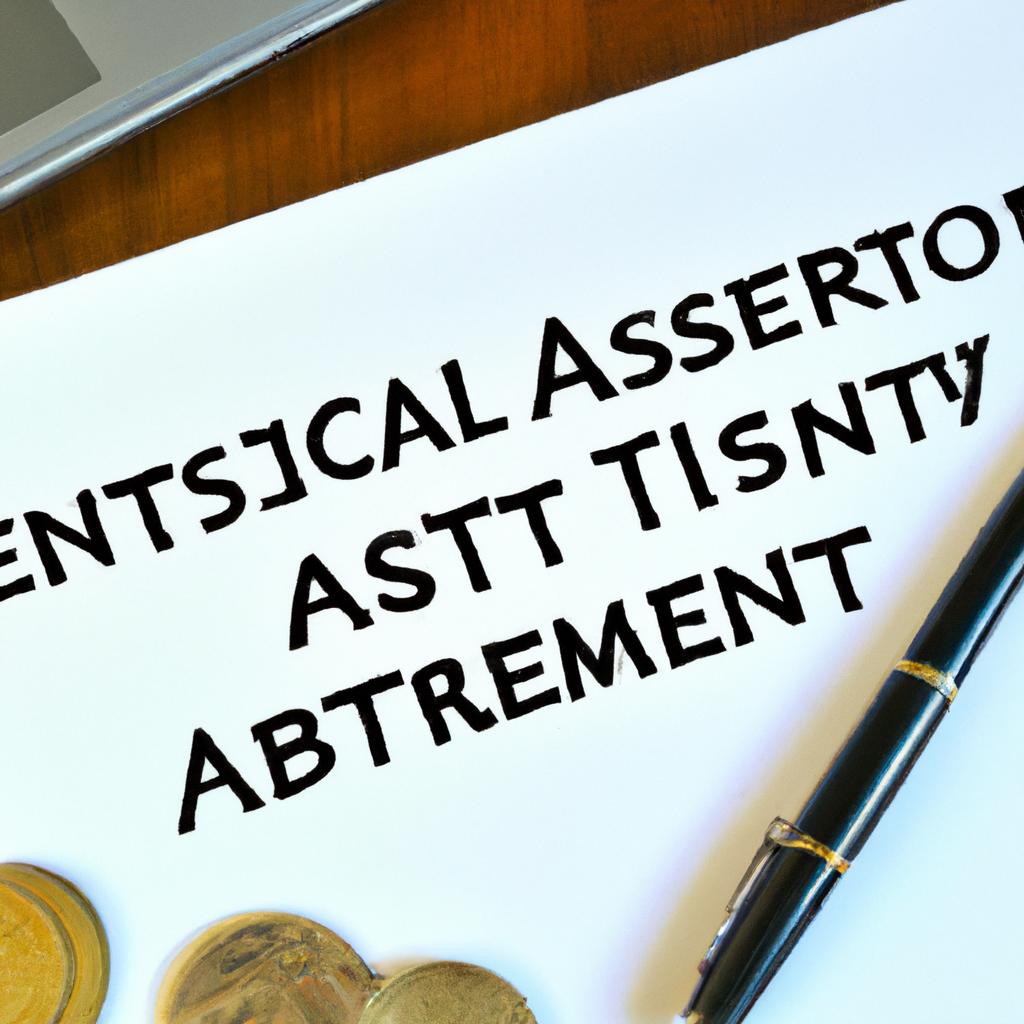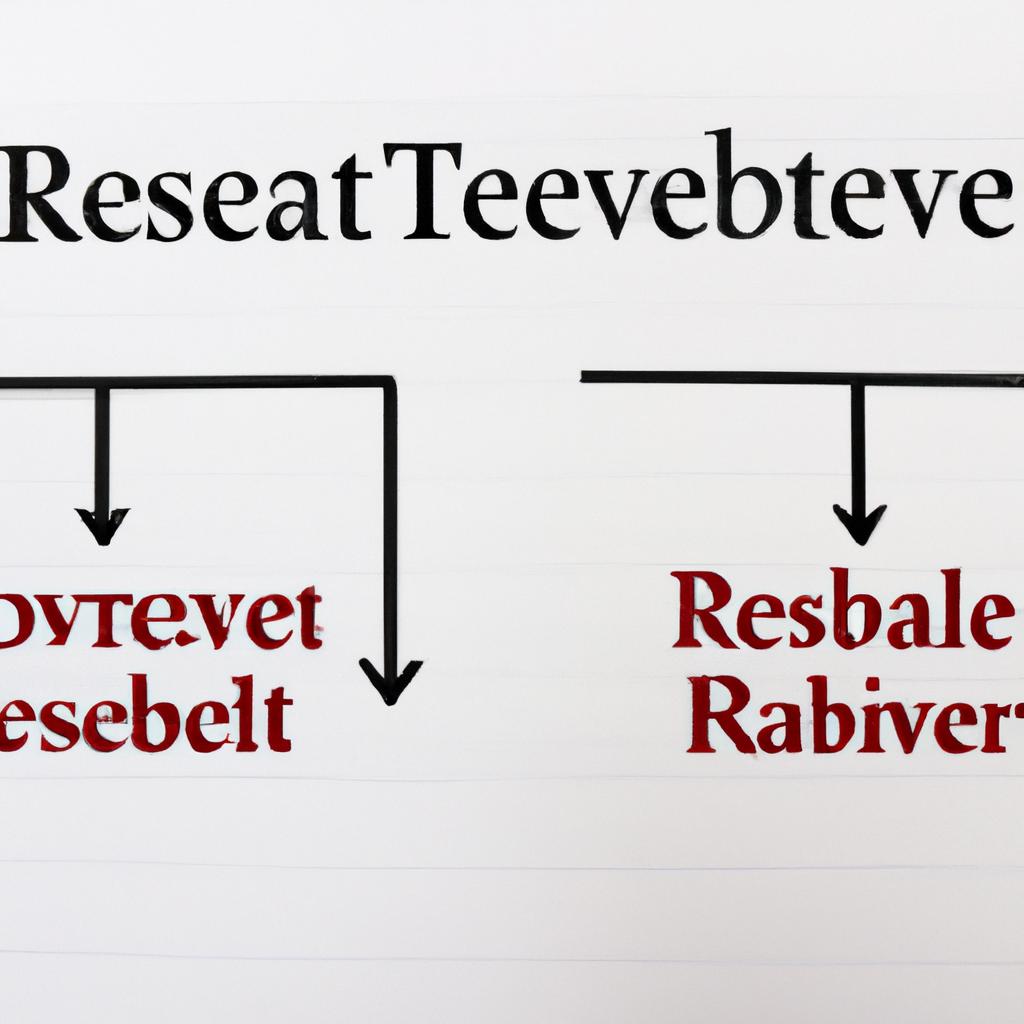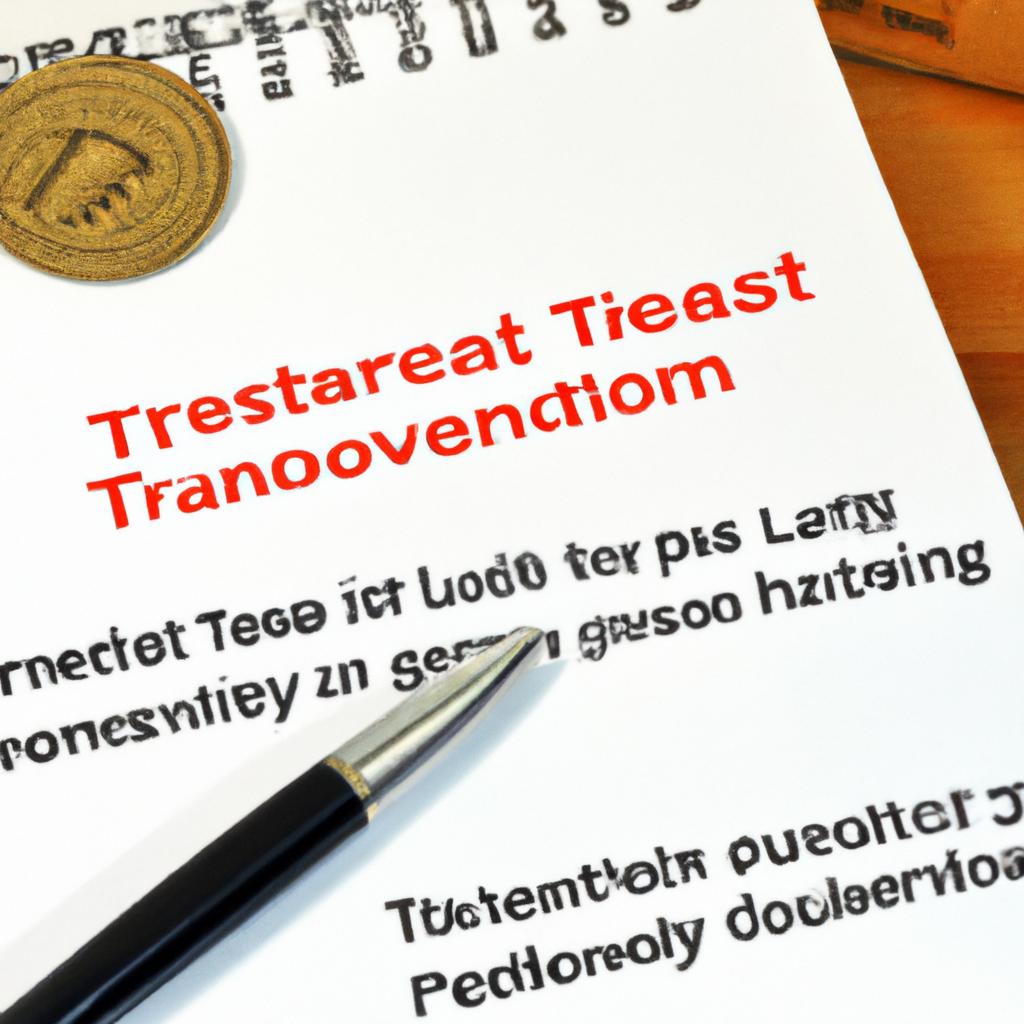As seasoned legal professionals at Morgan Legal Group, nestled in the bustling metropolis of New York City, we have diligently navigated the intricate web of estate planning, probate, elder law, Wills, and trusts for our valued clientele. In the realm of asset protection, the query looms large: what constitutes the best trust to safeguard one’s assets? Join us as we delve into the nuances of trust structures and discern the optimal path towards fortifying your financial security.
Selecting the Most Suitable Trust to Safeguard Your Assets
When it comes to protecting your assets, selecting the most suitable trust is crucial. Trusts are powerful legal tools that can help safeguard your wealth and provide for your loved ones. With so many options available, it can be overwhelming to determine which trust is the best fit for your unique circumstances. Here are some key considerations to keep in mind when choosing the right trust to protect your assets:
- Irrevocable Trust: Provides asset protection and tax benefits, but cannot be altered or revoked once established.
- Revocable Trust: Allows flexibility to modify or revoke the trust during your lifetime, but may not offer the same level of asset protection.
- Asset Protection Trust: Specifically designed to shield assets from creditors and lawsuits, offering an extra layer of security.
Each trust has its own advantages and limitations, so it is important to consult with a knowledgeable estate planning attorney to discuss your goals and concerns. By carefully considering your options and seeking professional guidance, you can create a solid plan to protect your assets and ensure your wishes are carried out effectively.

Understanding the Legalities and Benefits of Asset Protection Trusts
Asset protection trusts are a crucial tool in safeguarding your wealth and ensuring that your assets are preserved for your future beneficiaries. These trusts offer a multitude of benefits, including:
- Limited Liability: Asset protection trusts shield your assets from creditors and legal judgments, providing you with peace of mind knowing that your wealth is secure.
- Privacy: By placing assets in a trust, you can maintain a level of privacy as trusts are not subject to public record, unlike wills.
- Control: Despite transferring assets to a trust, you can still retain a certain level of control over the management and distribution of your wealth.
| Trust Type | Asset Protection Level |
|---|---|
| Irrevocable Trust | High |
| Revocable Trust | Low |
When determining the best trust to protect your assets, it is essential to consult with an experienced estate planning attorney who can assess your individual needs and goals. The right trust for you will depend on various factors, including the level of asset protection required, tax implications, and your specific financial situation. By working closely with a knowledgeable legal professional, you can create a comprehensive asset protection plan that meets your unique needs and safeguards your wealth for generations to come.

Comparing Revocable and Irrevocable Trusts for Asset Protection
When it comes to protecting your assets, choosing between a revocable and irrevocable trust is a critical decision. Both types of trusts offer asset protection benefits, but they differ in important ways. Here are some key considerations to keep in mind:
<ul>
<li><strong>Flexibility:</strong> A revocable trust allows you to make changes or revoke the trust at any time, giving you more control over your assets. On the other hand, an irrevocable trust cannot be modified once it is established, providing greater protection against creditors.</li>
<li><strong>Asset Control:</strong> With a revocable trust, you retain control over the assets placed in the trust, which can be beneficial if you need to access funds in the future. In contrast, an irrevocable trust transfers ownership of the assets to the trust, protecting them from potential legal claims.</li>
</ul>
<p>Ultimately, the best trust for asset protection will depend on your individual financial situation and goals. Consulting with an experienced estate planning attorney can help you determine the most suitable option for safeguarding your wealth and ensuring your legacy.</p>
Key Factors to Consider When Establishing a Trust for Asset Protection
When it comes to protecting your assets, choosing the right trust is crucial. There are several key factors to consider in order to ensure that your assets are safeguarded effectively. One important factor to take into consideration is the type of trust that will best suit your needs. Different trusts offer varying levels of asset protection, so it is essential to select the one that aligns with your specific goals and circumstances.
Another critical factor to consider is the selection of a trustee. The trustee plays a significant role in managing the trust and safeguarding your assets. It is imperative to choose a trustee who is reliable, trustworthy, and has a good understanding of asset protection strategies. Additionally, considering the jurisdiction in which the trust is established can also impact the level of asset protection. Certain jurisdictions offer more robust asset protection laws, so it is essential to assess which jurisdiction aligns best with your asset protection goals.
Q&A
Q: What is the best trust to protect assets?
A: The best trust to protect assets typically depends on individual circumstances and goals. However, popular options include irrevocable trusts, spendthrift trusts, and asset protection trusts.
Q: What is an irrevocable trust?
A: An irrevocable trust is a type of trust that cannot be changed or revoked once it is created. Assets transferred to an irrevocable trust are typically shielded from creditors and estate taxes.
Q: What is a spendthrift trust?
A: A spendthrift trust is a type of trust that allows a trustee to control distributions to a beneficiary, protecting the assets from being squandered or seized by creditors.
Q: What is an asset protection trust?
A: An asset protection trust is a type of trust specifically designed to shield assets from legal claims or creditors. These trusts are often established in offshore jurisdictions with favorable asset protection laws.
Q: Are there any drawbacks to using trusts to protect assets?
A: While trusts can be effective for asset protection, they often come with administrative costs and legal complexities. Additionally, transferring assets into a trust may involve tax implications.
Q: What factors should be considered when choosing a trust for asset protection?
A: When choosing a trust for asset protection, factors such as the level of protection needed, the jurisdiction in which the trust is established, and the potential tax implications should be carefully considered. Consulting with a financial advisor or estate planning attorney can help determine the best trust for individual needs.
In Summary
In conclusion, when it comes to protecting your assets, the best trust for you will depend on your specific needs and circumstances. Whether you choose a revocable living trust, an irrevocable trust, or another type of trust, it is important to carefully consider your options and consult with a trusted legal advisor to ensure that your assets are safeguarded for the future. Remember, the best trust is the one that provides you with peace of mind and security in knowing that your assets are protected.
 Introduction
Introduction
Protecting your assets is a vital part of financial planning and managing your wealth. It involves safeguarding your possessions and investments against potential risks such as lawsuits, creditors, or unexpected financial events. The best tool to achieve this is by establishing an irrevocable trust, which can provide secure and long-term protection for your assets. In this article, we will explore in depth what an irrevocable trust is, the various types available, their benefits, and how to choose the best trust to protect your assets.
What is an Irrevocable Trust?
An irrevocable trust is a legal arrangement in which a trustee holds and manages assets on behalf of the beneficiaries. Unlike a revocable trust, once an irrevocable trust is created, it cannot be modified, amended or terminated by the trustor (the person creating the trust). This gives the trustee full control and responsibility to manage the trust and its assets according to the terms and conditions set out by the trustor.
Types of Irrevocable Trusts
There are several types of irrevocable trusts, each designed for a specific purpose. They include:
1. Asset Protection Trusts
Asset protection trusts are specially designed to protect assets from potential creditors, lawsuits, and bankruptcy. They are often created in offshore jurisdictions with favorable asset protection laws such as the Cook Islands, Nevis, or Belize. This type of trust allows the trustor to transfer assets into the trust, removing them from personal ownership and thus making them less vulnerable to legal actions.
2. Special Needs Trusts
Special needs trusts are set up to provide for a loved one with special needs. These trusts are usually created by parents or guardians and managed by a trustee who ensures that the beneficiary receives the necessary care and support without jeopardizing their eligibility for government benefits.
3. Spendthrift Trusts
Spendthrift trusts protect the assets of a beneficiary from themselves. This type of trust is beneficial when the beneficiary has a history of poor financial management or substance abuse issues. It allows the trustee to have full control over the assets, ensuring that they are used wisely for the beneficiary’s benefit.
4. Life Insurance Trusts
A life insurance trust is created to hold and manage a life insurance policy on behalf of the beneficiary. This type of trust ensures that the insurance proceeds are not included in the trustor’s estate, minimizing estate taxes and providing financial security for the beneficiary.
Benefits of an Irrevocable Trust
1. Asset Protection
The primary benefit of an irrevocable trust is its ability to protect assets from potential risks such as lawsuits, creditors, and divorce. By transferring assets into the trust, the trustor no longer owns them, making them less vulnerable to legal action.
2. Tax Advantages
Irrevocable trusts offer significant tax benefits, especially when it comes to estate planning. Since assets in an irrevocable trust are no longer considered part of the trustor’s estate, they are not subject to estate taxes, potentially saving thousands of dollars in taxes.
3. Continuity of Asset Management
By appointing a trustee to manage the trust’s assets, the trustor ensures that their assets will be managed according to their wishes even after their death or incapacitation. This provides peace of mind and continuity in asset management for the trustor and their beneficiaries.
4. Protecting Beneficiaries
Irrevocable trusts also offer protection for beneficiaries. By placing assets in a trust, the trustor ensures that their beneficiaries will receive financial support and protection even in the event of a lawsuit or bankruptcy.
How to Choose the Best Trust to Protect Your Assets
When considering an irrevocable trust, it is crucial to seek professional advice from an experienced estate planning attorney and financial advisor. They can help you determine which type of trust is best suited for your specific needs and circumstances. Some factors to consider when choosing the best trust to protect your assets include:
1. Your Objectives
Before creating an irrevocable trust, it is essential to have a clear understanding of your objectives. Do you want to protect your assets from potential creditors, provide for a loved one, or minimize estate taxes? Knowing your goals will help you determine which type of trust is best suited for your situation.
2. Type of Assets
The type of assets you want to protect should also be considered when choosing an irrevocable trust. Some trusts, like asset protection trusts, are specifically designed to protect specific assets, such as cash, real estate, or investments, from potential risks.
3. Cost
Creating an irrevocable trust can be a significant expense. Therefore, it is essential to consider the cost when choosing the best trust to protect your assets. Some trusts, like offshore asset protection trusts, may have higher fees due to the additional layers of protection they provide.
4. Jurisdiction
The jurisdiction where the trust is established is an important factor to consider. Some states and countries have favorable laws to protect assets, making them ideal for creating an irrevocable trust. It is crucial to consult with a professional to determine the best jurisdiction for your specific needs.
Conclusion
In summary, an irrevocable trust is the best tool to protect your assets from potential risks and provide long-term security for your loved ones. By understanding the different types of trusts available, their benefits, and how to choose the best one for your situation, you can ensure that your assets are well-protected and managed according to your wishes. Seek professional advice to determine the best trust to protect your assets and ensure that your financial legacy is secure for generations to come.


